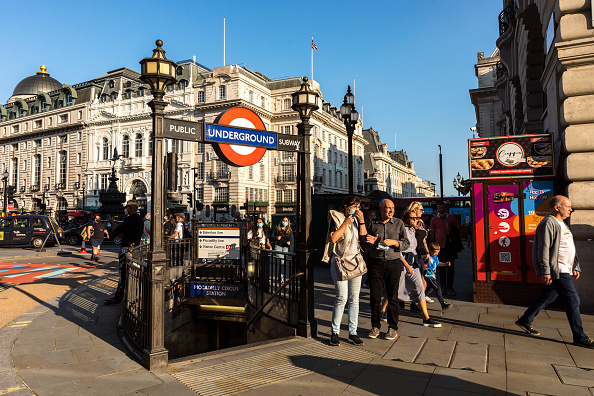Exclusive: Six-in-ten Brits want to level down London

Almost six-in-ten Brits want to level down London by shuffling jobs and government funding from the capital to the rest of the UK, according to new polling.
Polling by BMG Research, and commissioned by City A.M., shows 25 per cent of people strongly support reducing “funding, jobs and opportunities” in London to “increase them in other parts of the UK”, while 33 per cent of people somewhat support this proposal.
The desire to see London’s economic might chopped down to enhance other areas’ opportunities was most prevalent among over-55s and those based in either Yorkshire or Scotland.
However, the survey also found 44 per cent of Brits thought the capital was a “force for good”, against 14 per cent who think it is not, and 51 per cent of respondents said London had a positive effect on the UK economy.
One of the key pillars of Boris Johnson’s domestic policy is his levelling up agenda, which seeks to address regional economic imbalances across the UK.
Johnson promised at the 2019 election to spend £100bn on infrastructure spending across the UK and the government has also unveiled a £4.8bn Levelling Up Fund intended to improve High Streets, local transport and heritage assets.
Mayor of London Sadiq Khan has repeatedly warned that the agenda must not lead to “levelling London down” by withholding funding for vital infrastructure projects or Transport for London (TfL).
Official figures show London has the largest ‘net fiscal surplus’ in the country, with each Londoner contributing an average of £4,030 more in taxes than they receive from public spending. The South East is next at just over £2,000.
Khan told City A.M.: “Dragging London down is not the answer to the critical challenge of how we unlock the potential of all our towns, cities and regions.
“Our capital is proud to contribute £36bn a year to the Treasury – money which is spent in towns and cities nationwide. London is also the most unequal region in the UK, with some of the highest rates of child poverty. To claim our streets are paved with gold is divisive and wrong-headed.”
The status of TfL has been a particular bone of contention for City Hall and London-based MPs, with central government refusing to provide a long-term funding settlement for the transport body.
There is a widely held belief in City Hall that this has been because of Johnson’s dislike for Khan, and that the government also wants to send a message that the golden tap has been cut off for the capital.
There have been calls from London business groups for the government to include poorer areas of London in the levelling up push.
Muniya Barua, managing director of policy and strategy at London First, said: “Devolved authorities – including London – will need more firepower if the whole UK is to thrive post-pandemic. London plays an important part in the UK’s economy and getting it back on track is vital for recovery.”
Nick Bowes, chief executive at the Centre for London said: “London’s enormous success brings great benefits to the UK, but as a city we need to get much better at telling that story to the country as a whole without sounding arrogant or patronising.
“London’s success has a key role to play in the levelling up agenda through helping raise the standards of living in all parts of the UK. But politicians and decision makers on all sides need to recognise just how much poverty and inequality there also is within London, which is worsening as a result of the growing cost of living pressures
An official from the Department for Levelling Up, Housing and Communities said the department’s mission was not to “level down any parts of the country”.
“We’ve been clear from the start that the key point is we’re not levelling down prosperous parts of the UK or london, we’re bringing up less prosperous parts to the standards of some parts of London,” they said.